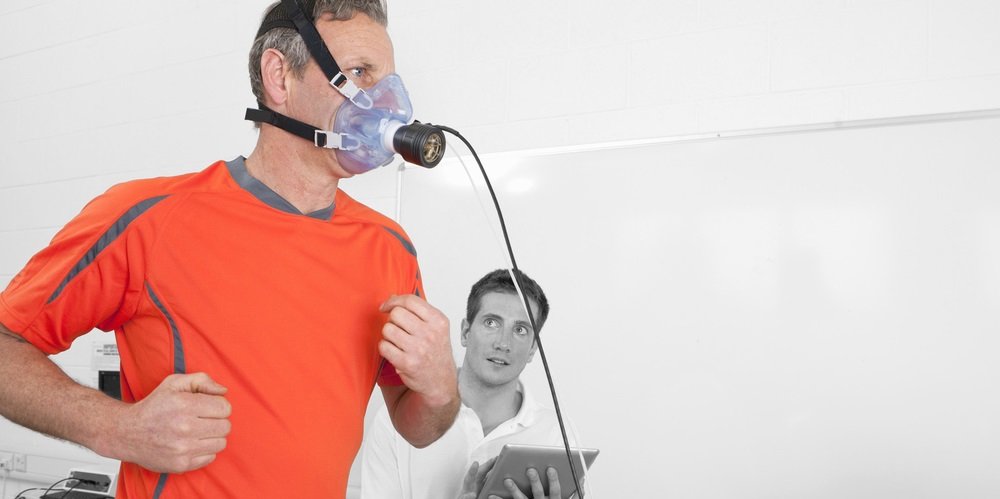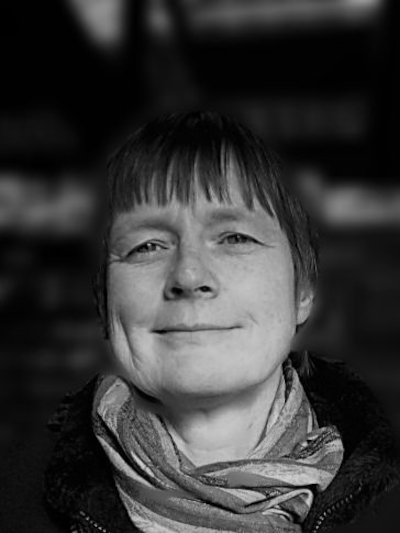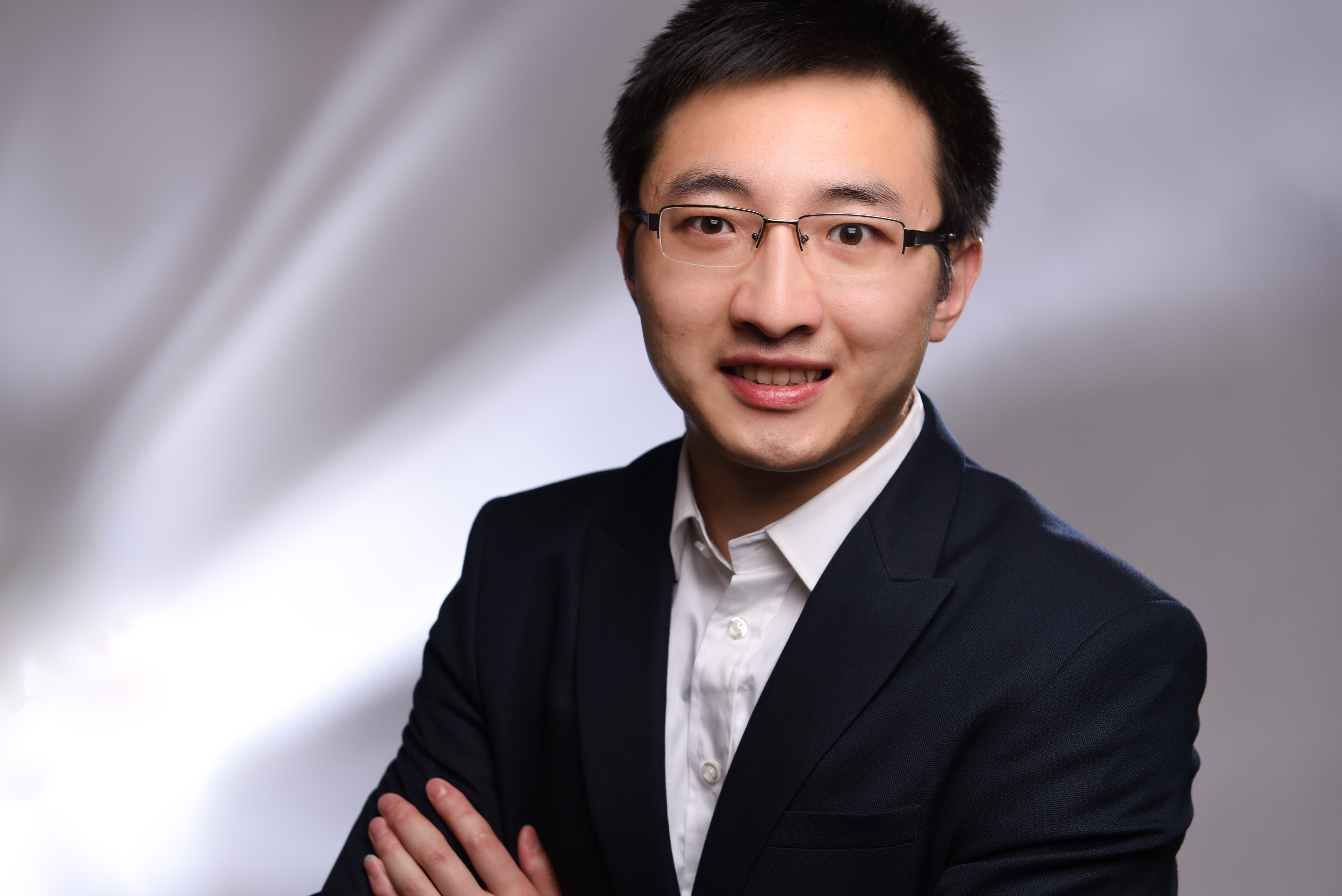HTIC


Biography : Andreas Frutiger holds a bachelor degree in materials science from ETH Zurich and two master’s degree in materials and biomedical engineering from ETH Zurich. He spent his master thesis at the Wyss Institute of Harvard University in Boston, where he developed a novel capacitive stretch sensor for a soft exoskeleton. In his PhD studies at ETH Zürich, he focused on the development of focal molography, a novel optical biosensing technique for real-time label-free detection in living cells and complex fluids. Andreas Frutiger is co-founder and VP of R&D of lino Biotech AG. Lino Biotech AG was a spinoff of ETH Zurich and F.Hoffmann-La Roche AG commercializing focal Molography and now part of Miltenyi Biotech GmbH. Andreas Frutiger co-authored 16 publications and 8 patent applications in the fields of sensing and biosensing.
Abstract : Focal molography is a new label-free detection method, which allows the real-time investigation of complex molecular interactions in the presence of a complex biological environment without any stabilization or equilibration. Thereby, opening up new perspectives and possibilities in drug discovery, bioprocessing or diagnostics and related disciplines. In particular, we have shown an interesting approach to diagnostics based on real-time immunosignaturing. This approach utilizes an array of molographic sensors to discriminate between different health conditions in a real-time direct binding assay format. We demonstrated the proof of principle with plasma profiling of different hemagglutinin-like peptides to discriminate different blood donors. In addition, we demonstrate other non-diagnostic applications of focal molography including the determination of binding parameters in complex samples, the characterization of membrane proteins in living cells as well as the real-time observation of cytosolic proteins in living cells6. As the figure summarizes the features of focal molography make it an ideal technology for future miniaturized point of care devices.

Biography : Alexandros Karargyris leads the Medical working group at MLCommons. The group has a mission to provide neutral benchmarking and best practices for Medical AI in an effort to circumvent negative effects of AI. In its short life span the group has grown to already support the largest federation of brain tumor segmentation as well as to plan its prospective AI studies. Previously he worked as a research lead at IHU Strasbourg in projects related to applications in the intersection of surgery and AI. He also worked as a researcher at IBM and NIH for more than 10 years. His research interests lie in the space of medical imaging, machine learning and mobile health. He has contributed to healthcare commercial products and imaging solutions deployed in under-resourced areas. His research has been published in peer-reviewed journals and conferences.
Abstract : AI has shown its potential to impact healthcare in unprecedented ways. However its clinical translation, from research to the real world, is held back by lack of robust validation in diverse patient populations. Repeated stories of AI trained on selected populations but failing in real world scenarios demonstrate gaps in AI/ML (e.g. bias, socioeconomic gaps). In this talk I will be presenting MedPerf (http://medperf.org), an open source platform for reproducible benchmarking of medical AI at global scale to help mitigate some of the current challenges. More specifically, I am going to be discussing current development and future directions of the platform. This is an excellent opportunity to identify common interests and directions with the digital pathology community. MedPerf is developed and maintained on a volunteering basis by a diverse group of industry and academic researchers offering a neutral approach to benchmarking. The platform is supported by MLCommons (http://mlcommons.org), a non-profit technical organization for ML benchmarking supported by industry and academia

Biography : Anne Martel is a Professor in Medical Biophysics at the University of Toronto, a Senior Scientist and Tory Family Chair in Oncology at Sunnybrook Research Institute, and a Faculty Affiliate at the Vector Institute, Toronto. Her research program is focused on medical image and digital pathology analysis, particularly on applications of machine learning for segmentation, diagnosis, and prediction/prognosis. In 2006 she co-founded Pathcore, a software company developing complete workflow solutions for digital pathology.
Dr Martel is an active member of the medical image analysis community and is a fellow of the MICCAI Society which represents engineers and computer scientists working in this field. She has served as a board member of MICCAI and is currently on the editorial board of the journal Medical Image Analysis.
Abstract : Anatomic pathology plays an important role in the management of breast cancer, providing diagnostic, prognostic and predictive information to oncologists. The introduction of scanners capable of capturing high resolution images of microscope slides and advances in deep learning have provided an opportunity to reduce pathologists’ workload and improve on the accuracy of prognosis using AI. Although the talk will focus on our work in metastases detection, residual tumour burden assessment and recurrence prediction in breast cancer, the semi-supervised and self-supervised approaches that we have developed to overcome the challenges posed by small and/or weakly labelled datasets are applicable to many medical image analysis tasks.

Biography : Omar S.M. El Nahhas is a computer scientist who joined the Kather Lab in 2022 as a PhD student. His research focuses on improving the performance and interpretability of deep learning in clinical artificial intelligence. He is supervised by Prof. Jakob Nikolas Kather from TU Dresden and co-supervised by Prof. Sayan Mukherjee from Leipzig University. In addition, he is an entrepreneur, start-up advisor, venture capital consultant, and leads the lab’s efforts to create scientific output with real-world impact.
Abstract : Advancements in AI have revolutionized the way we analyze histopathology slides, allowing us to identify subtle patterns and biomarkers that were previously undetectable. In this talk, Omar will present a practical overview of going from H&E slides to AI-based cancer biomarker predictions. Moreover, he will touch upon current and future research challenges in the Kather Lab, including the different modalities and cohorts they are working with.

Biography : Umberto Tomasini started his PhD at EPFL in Physics and Machine Learning in 2020. He is currently interested in understanding how deep learning can learn and represent structured data, by theoretical and empirical means. Previously, he studied Statistical Physics at the University of Padova, and he was part of its Excellence School. In 2022 he won a Dean’s Award for excellence in teaching.
Abstract : A central question of machine learning is how deep nets manage to learn tasks in high dimensions. An appealing hypothesis is that they achieve this feat by building a representation of the data where information irrelevant to the task is lost. For image datasets, this view is supported by the observation that after (and not before) training, the neural representation becomes less and less sensitive to local distortions (diffeomorphisms) acting on images as the signal propagates through the net. This loss of sensitivity correlates with performance and surprisingly correlates with a gain of sensitivity to white noise acquired during training. We argue that two mechanisms, spatial and channel pooling, are being learnt by Convolutional Neural Networks to build a representation nearly invariant to smooth transformations. We develop an empirical procedure to disentangle these two effects. Finally, we introduce a toy model of data that captures our salient observations, and that can be treated analytically. In particular, this analysis explains why a succession of spatial pooling and non-linear operations can increase the sensitivity to random noise added to images.
Biography :
Dr. Jing Gong: As a technical specialist at Sino Biological Europe GmbH, Dr. Jing Gong provides technical assistance for their recombinant protein and antibody products, as well as support CRO services of recombinant protein production and antibody development for their customers. Before joining Sino, Dr. Gong obtained his PhD degree in the neurodegenerative disease research field in 2019, in Germany.

Dr. Brahim Gargouri is currently the Key Account Manager for Switzerland at Sino Biological Europe, where his primary role is to serve customers and assist them with the company's extensive product portfolio of recombinant protein and antibody products, as well as support CRO services for recombinant protein production and antibody development for their customers. He has extensive experience in the life science industry and has worked as a sales specialist in Single-cell multi-omics. Brahim obtained his PhD degree in neurodegenerative disease research from the University of Freiburg in Germany. He is a valuable asset to Sino Biological Europe and plays a pivotal role in the success of the company by providing excellent customer service and support for their extensive product portfolio of recombinant protein and antibody products, as well as supporting CRO services for recombinant protein production and antibody development.

Abstract : Sino Biological is a world-leading supplier of in vitro diagnostic (IVD) raw materials and has been certified by ISO 13485 Medical Device Quality Management System. In the past 15+ years, we have continued to provide high-quality diagnostic antigen and antibody raw materials to the IVD industry, which are suitable for various detection platforms, such as pathological diagnosis, flow cytometry diagnosis, colloidal gold, chemiluminescence, and immunoturbidity. Relying on the five major antibody development platforms (hybridoma, phage display, Beacon®, FACS single B, and rabbit pAb), Sino Biological provides customized one-stop solutions according to customers' needs and application scenarios, fully supporting the development and marketing of in vitro diagnostic products. Additionally, our antibody reagents have successfully supported the FDA approval of diagnostic kits.

Biography : Dr. Christian Baumgartner is leading the Independent Research Group for Machine Learning in Medical Image Analysis at the University of Tübingen, which is part of the Cluster of Excellence - Machine Learning for Science. Prior to his current position, he worked as a senior research engineer at PTC Vuforia, where he focused on the development of machine learning technology for augmented reality applications. Before that, he was a Post-doc at the Biomedical Image Computing Group at ETH Zürich, working with Prof. Ender Konukoglu, and before that, he was a Post-doc in the Biomedical Image Analysis Lab with Prof. Daniel Rueckert. Dr. Baumgartner received his PhD in 2016 from the School of Biomedical Engineering & Imaging Sciences at King's College London, under the joint supervision of Prof. Andy King and Prof. Daniel Rueckert.
Abstract : Over the last century, medical imaging has fundamentally revolutionised medicine. In this century, machine learning seems poised to once more revolutions healthcare. Applications in medical image analysis are among those that stand to gain the most from this new technology. It offers the promise to massively accelerate assessment of medical images, allow clinicians to make fewer mistakes, and open new possibilities in diagnosing and treatment of pathologies. As the rapid advancements in AI continue, questions regarding how the technology will be integrated into clinical workflows, and what technical requirements it must meet, become increasingly important. In this talk, I will give an overview of our group's research in the areas of interpretable and robust ML for medical image analysis which lie at the root of those questions.


Biography : Dr. Davide Calvaresi is a senior researcher at the University of Applied Sciences and Arts Western Switzerland Valais (HES-SO).
He obtained his Master's degree in information and automation engineering from Univeristà Politecnica delle Marche, Italy, in 2014, and his Ph.D. in Emerging Digital Technologies - Real-Time Embedded Systems from Sant'Anna School of Advanced Studies, Italy, in 2018.
He has conducted several international research visiting (e.g., at the University of Toronto, Canada, and the HES-SO, Switzerland.
Davide's research is focused on, but not limited to, Real-Time Multi-Agent Systems, eXplainable Artificial Intelligence, blockchain, and assistive/rehabilitative technologies.
He has been chair of the workshop Real-Time compliant Multi-Agent Systems (RTcMAS2018), Blockchain for Multi-Agent Systems (BCT4MAS2018,2019, and 2020), and EXplainable TRansparent Autonomous Agents and Multi-Agent Systems (EXTRAAMAS2019--2023). Moreover, he has been the primary investigator of the SEAMLESS project aiming at enforcing timing compliance in MAS.
Currently, he is the technical coordinator of the European project named EXPECTATION, aiming at bridging sub-symbolic and symbolic AI to foster interpretability and explainability in Multi-Agent Systems.
Abstract : Traditional in-person evacuation drills intend to support occupants' safety, especially concerning fires in buildings. Nevertheless, (Immersive) Virtual Reality --(I)VR -- simulators guarantee higher involvement/information retention levels than traditional activities. However, (I)VR evacuation drill simulators are still affected by severe limitations. The presented study identifies current drawbacks and proposes a formalization framework, a simulator of existing (Mid Cosat) and under construction (new Sion) hospitals for multi-hazard behavior analysis. Moreover, our study includes individuals with special needs or disabled. The understanding obtained by this study will boost the education and training of those individuals who are (even more severely) exposed to the hazards' consequences. Finally, leveraging the developed framework and simulator, we envision benefits at infrastructural, behavioral, and social levels.
PART 1: (20 minutes)
Project ALPICAT
Abstract
Proof-of-concept in conceiving 3D printed connectivity ferrules for medical cathether devices. These were coated with antimicrobial peptides such to be reusable and ensure germ-free materials. The medical ferrules were designed and conceived by the material science laboratory of Energypolis, Sion, as by their micro-3D Printer. The coating mixture of selected synthetic peptides originated from a library owned by the peptide laboratory at Energypolis. All antimicrobial compounds were synthesized and formulated as ingredients for the coating solution in which the metallic ferrules were dipped. All peptides contain selective chemical functionalities in a way that these chemical groups can spontaneously crosslink with the metallic surface in a covalent manner, as to be resistant to all required washing procedures, handling and liquid flowthrough. Our microbiology laboratory made the assays to check germ-growth inhibition.
Biographies
Marc Mathieu: Graduated from UniL with PhD in 1997. >20 years experience in the peptide field from biotech to drug discovery. Activities focused on leading projects on custom manufacturing, investigation of novel synthetic routes and all related analytical/preparative processes.
Samuel Rey-Mermet: Samuel has obtained his Phd Thesis at EPFL in 2008 for his work on Microfabricated Solid Oxide Fuel Cells. He work in the field of materials science since 20 years with special focus on Additive manufacturing, Powder metallurgy and Failure assessment.
Bruno Schnyder: Graduated from ETH Zürich with Ph.D. in 1994. >25 years of experience in the field of clinical and food biology, assessing laboratory culturing of microorganisms and mammalian, human cells. These cell-based models simulate physiological situations and are employed for pre-clinical testings.
PART 2: (20 minutes)
Project Mild Traumatic Brain Injury Point-of-Care Testing Platform (NeuroMDx)
Abstract
About 70 million people worldwide suffer from traumatic brain injury (TBI) each year, with 11’000 cases per year reported in Switzerland. Sports or vehicle accidents, falls (elderly) and violence are among the typical causes. Short- to long-term consequences are known with a strong correlation of TBI with neurodegenerative diseases in later years. Not only diagnosis, but also recovery and rehabilitation, can be particularly challenging due to the absence of sensitive, non-invasive, and cost-effective diagnostics as well as drug therapeutics. The demonstrator conceived and built, during the project supported by the Axe Santé in the ITV and ISI laboratories, was successfully tested for the simultaneous detection, in serum, of three mTBI biomarkers (GFAP, S100b and hFABP). Moreover, these results are paving the road to further system integration and preliminary pre-clinical studies.
Biographies
Mr. Denis Prim is a senior academic associate and the Lab Head of the ‘Diagnostic Systems’ research laboratory at the Institute of Life Technologies of the University of Applied Sciences and Arts Western Switzerland. Mr. Prim received in 2008 an Engineering Diploma with distinction in Life Technologies, specialization Analytical Chemistry, from the University of Applied Sciences and Arts Western Switzerland. His research interests and expertise encompass the interdisciplinary field of biochemistry and bioanalytical instrument prototype development with a focus on POC in vitro diagnostic (IVD) systems. His passion for innovation and entrepreneurship has led him to create a start-up company in order to develop concrete and meaningful solutions for the healthcare field.
Dr. Marc E. Pfeifer is a full professor in bio-analytical sciences and Head of the ‘Diagnostic Systems’ research group at the Institute of Life Technologies of the University of Applied Sciences and Arts Western Switzerland. His research interest and expertise in surface chemistry, biochemistry, molecular and point-of-care (POC) diagnostic sensor and systems development originates from his experience as a research leader and project manager in the global in vitro diagnostic (IVD) industry in Switzerland, Japan, and USA. He received his Ph.D. in Life Sciences (specialization Bioorganic Chemistry) in 1998 from the University of Zurich.

Abstract:
Founded in 2021, the S.M.A.R.T. ecosystem. Confluence ecosystem has the vision to encourage the development of tomorrow's health by promoting innovation in health and sports in the canton of Valais. The initiative focuses on the "S.M.A.R.T." domains, with five strong specialties of its community of partners and regional actors: sports, medicine, ageing, rehabilitation and traumatology. The ambition of the project is to stimulate and accompany innovation in health and sport. In this context, support, accompaniment and financing tools exist and can be requested by all the actors of the S.M.A.R.T. community. Confluence community. They are complementary to existing tools or devices initiating collaborative projects in health or movement sciences. The objective of this HTL is notably to make known these different support tools, their scope, their criteria or the eligibility of potential applicants.
Biography:
President of Swiss Digital Health, promoter of the S.M.A.R.T. Confluence within the framework of the new regional policy and member of the management of CimArk, Sébastien Mabillard has been active for more than 17 years in the field of innovation and development of technological start-ups. He regularly intervenes as an expert on innovative health projects or to outline the challenges of tomorrow's digital health.